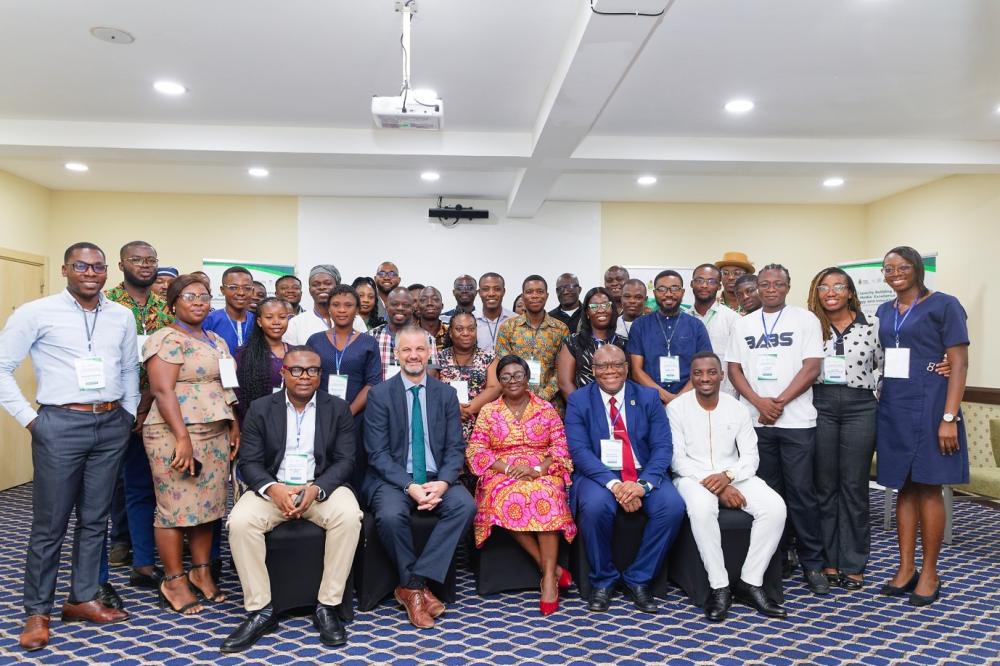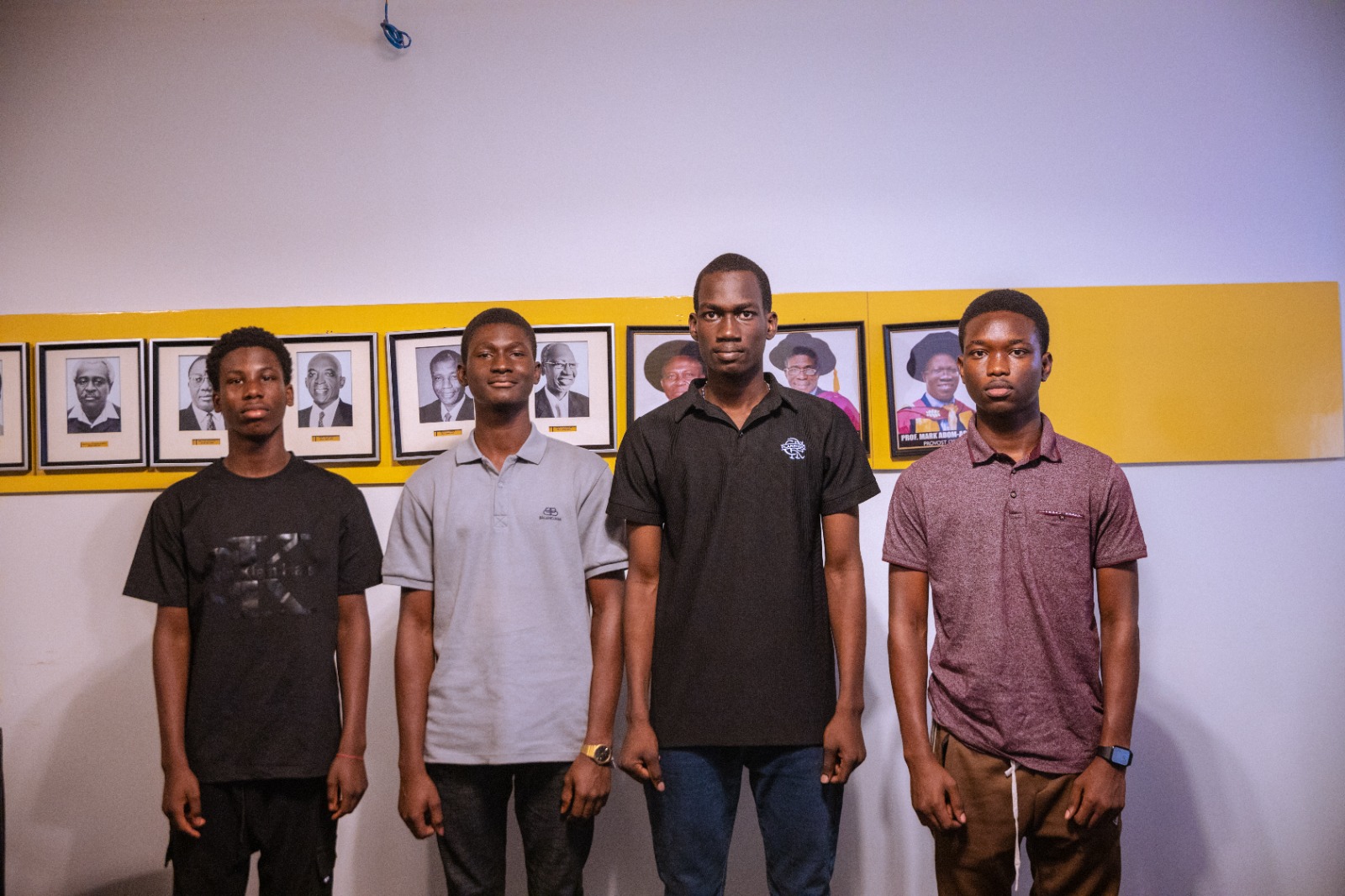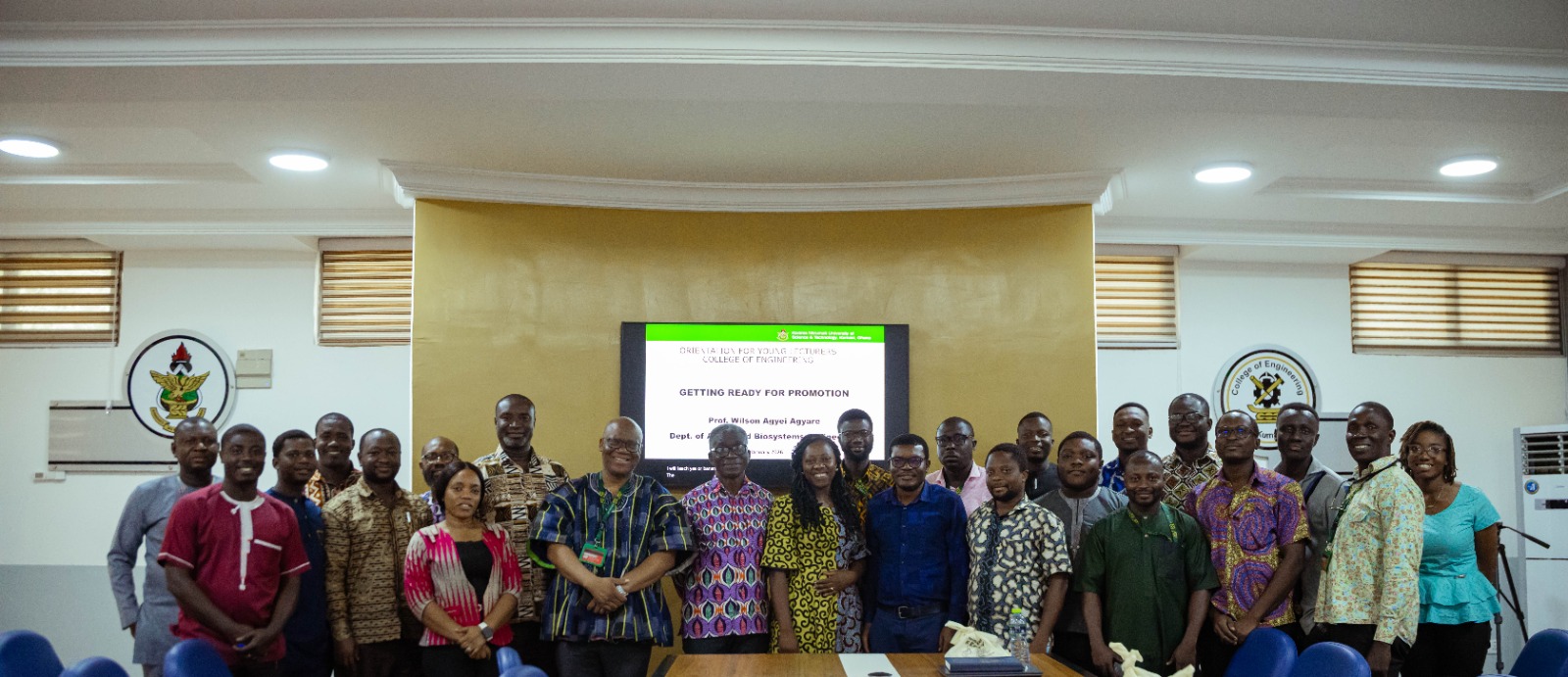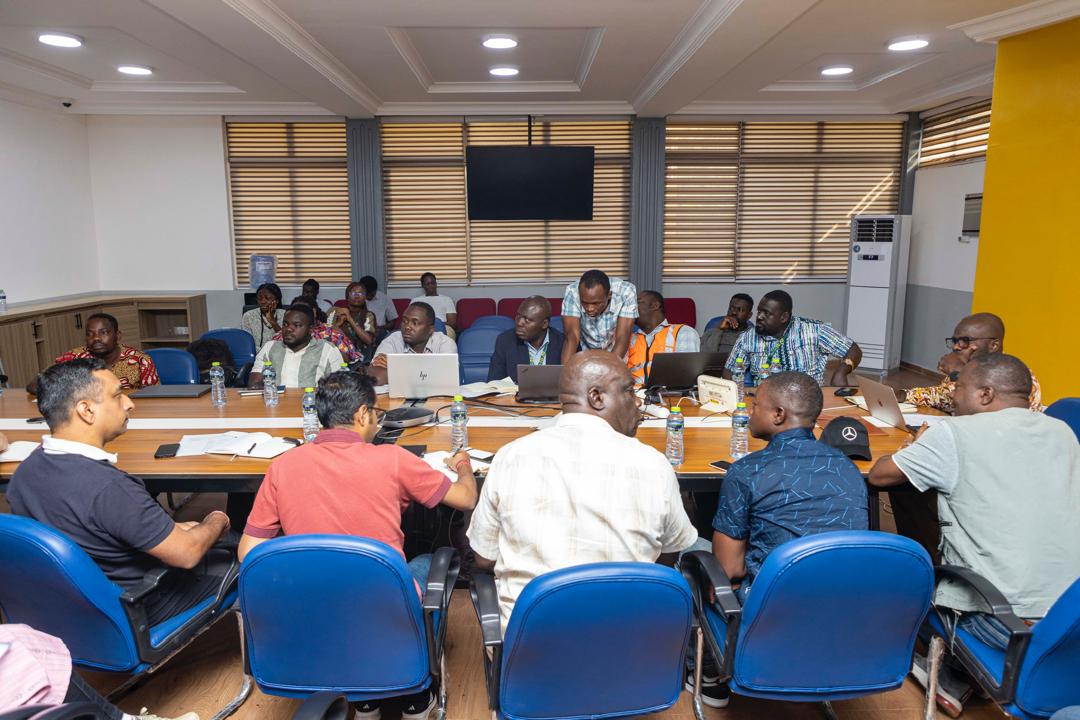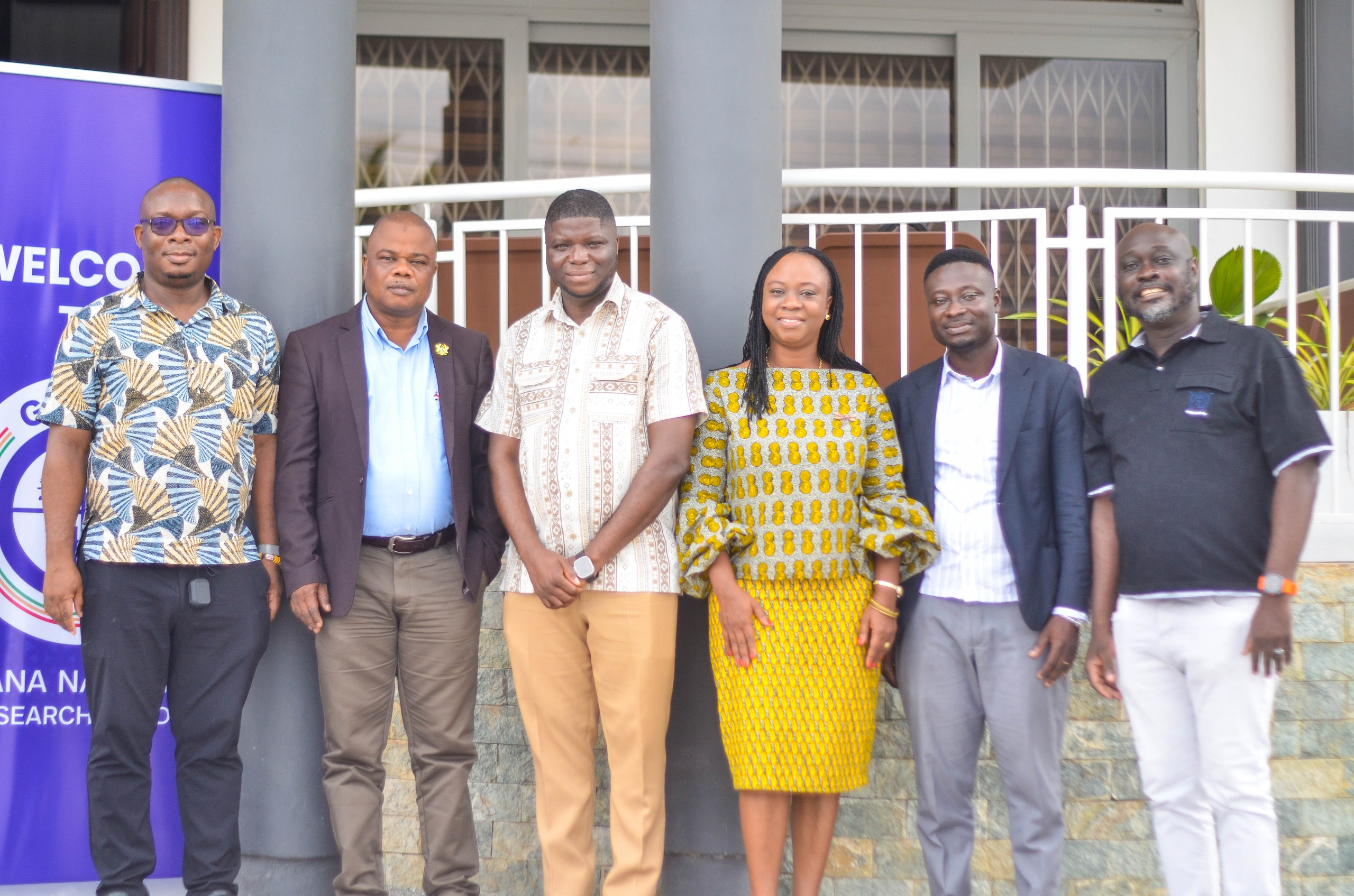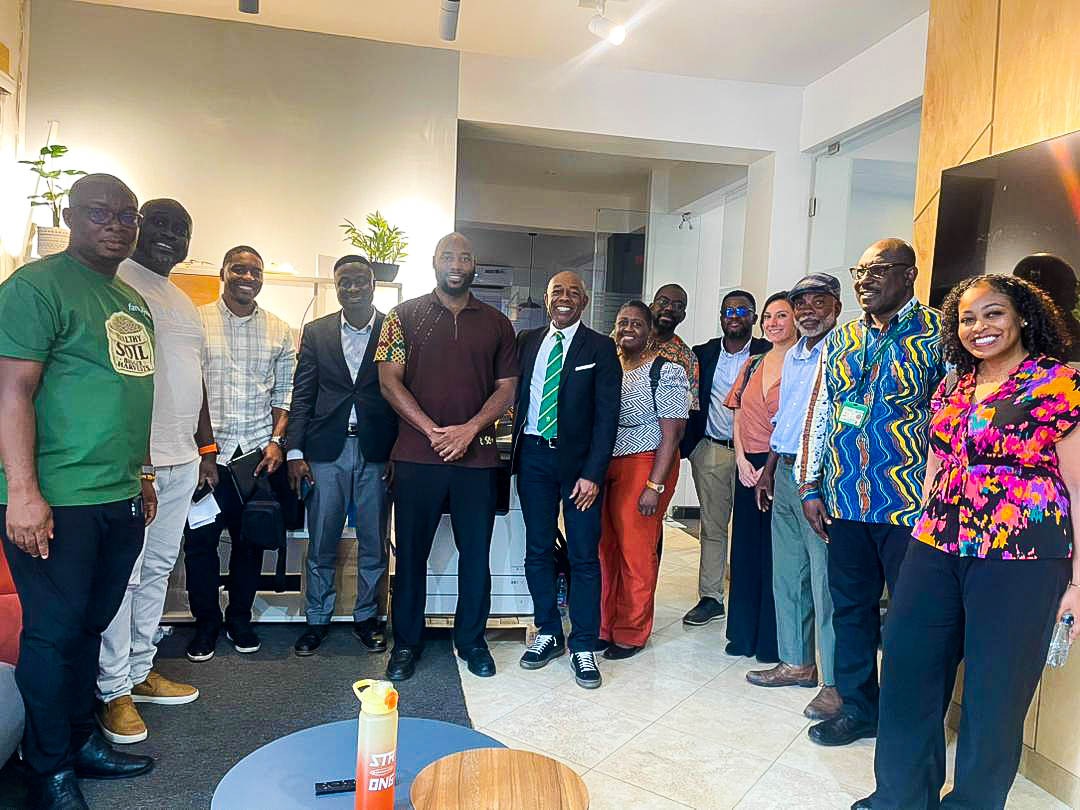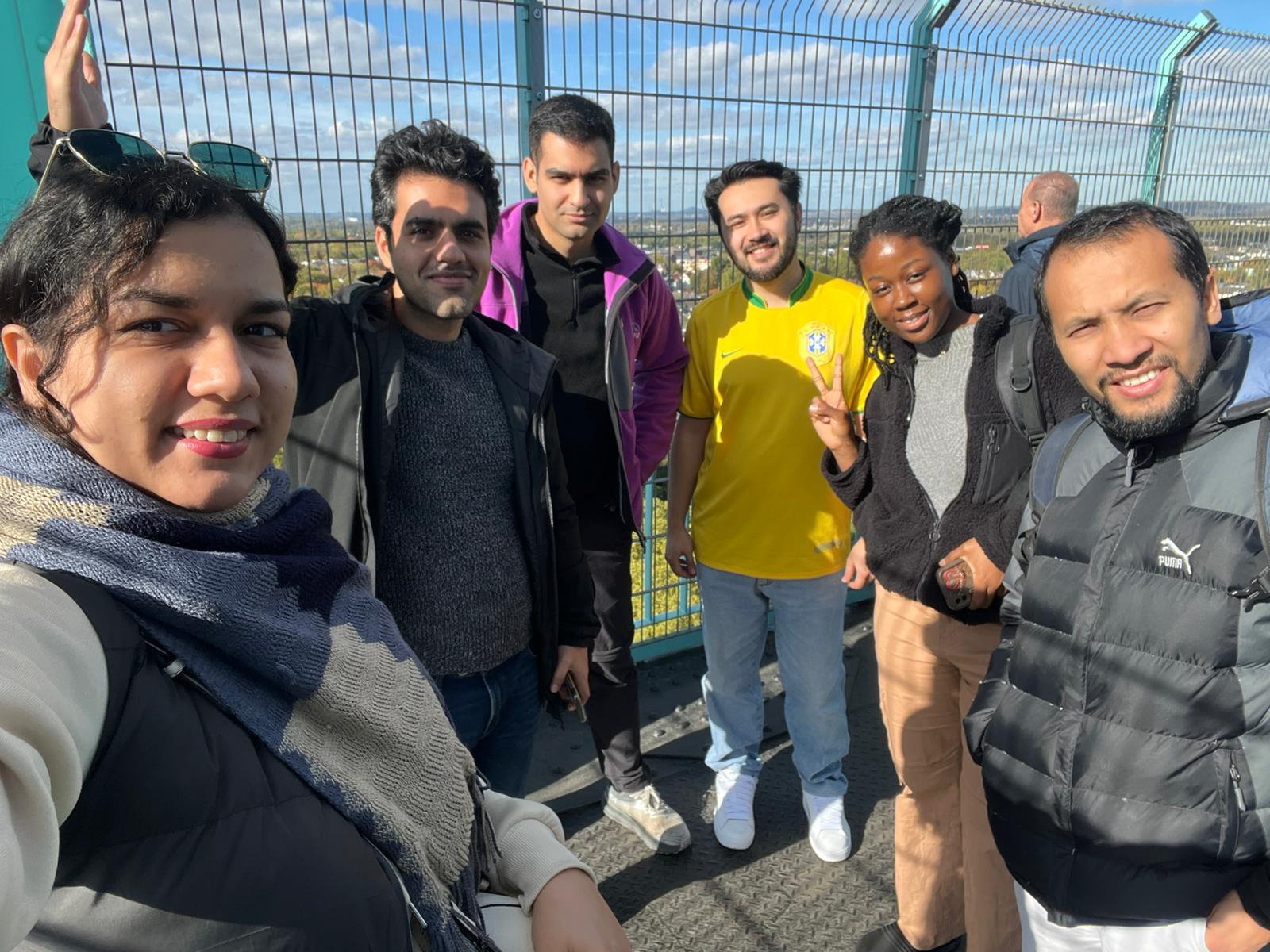The British High Commission Accra, in collaboration with the Responsible AI Lab (RAIL) at the Kwame Nkrumah University of Science and Technology, Kumasi (KNUST) and the Ministry of Environment, Science and Technology (MEST), has organised a week-long capacity-building workshop from 24th to 28th February 2025. The workshop brought together 30 Ghanaian journalists from leading media houses, including Media General, Multimedia Group, Ghana News Agency, Asaase Radio, Daily Graphic, New Times Corporation, and Ghana Broadcasting Corporation, among others. This aimed to enhance journalists' ability to drive measurable behaviour change while contributing to broader policy objectives in public understanding of science and technology.
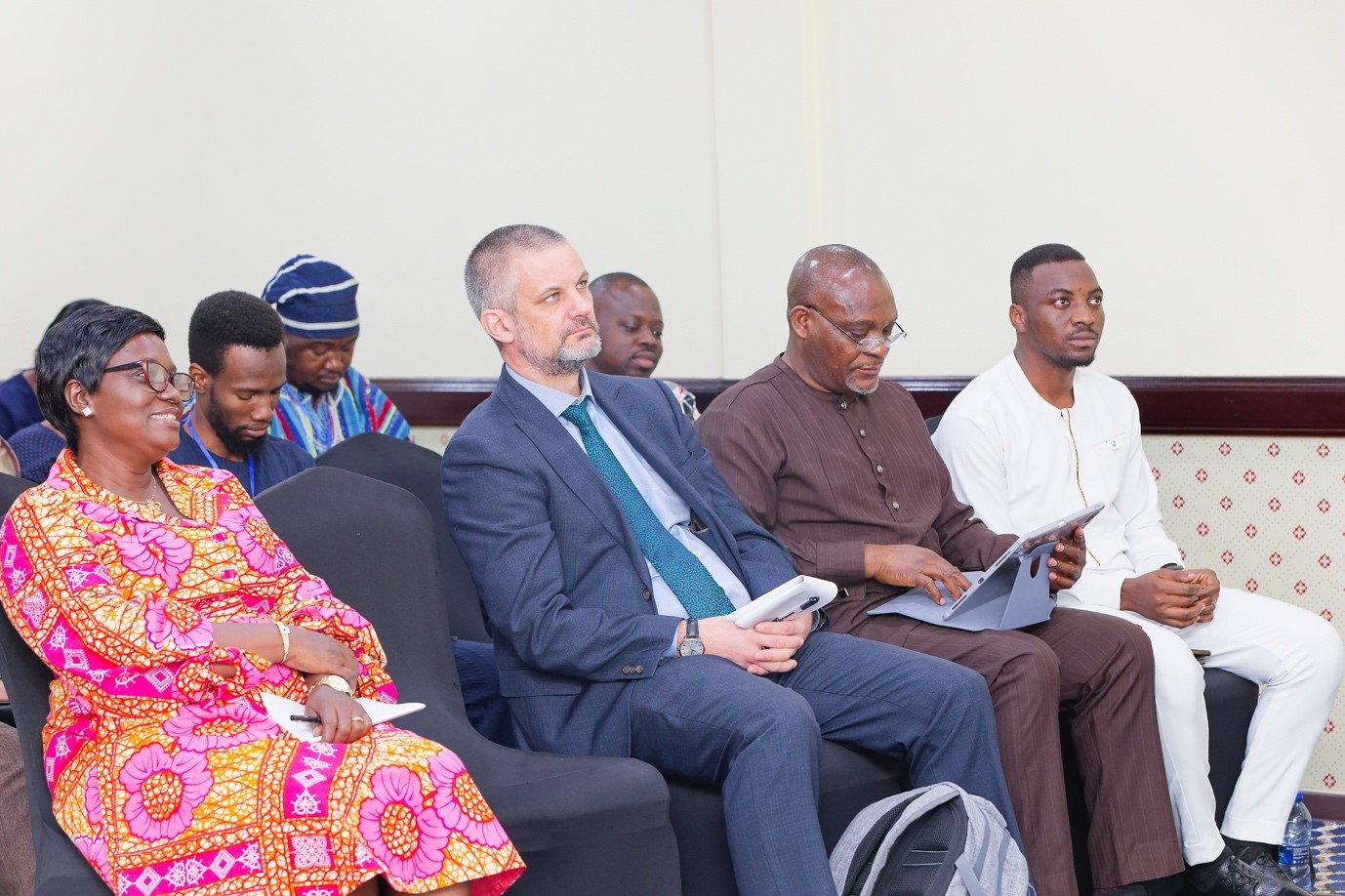
From right: Mr. Johnson Masagotin Singir, Science and Innovation Officer at the British High Commission Accra, Mr. Kwamena Quaison, Director of Science and Technology, MEST, Mr. Richard Sandall, Development Director at the British High Commission Accra and Mrs. Linda Asante Agyei, Vice-President of the Ghana Journalists Association (GJA) with some participants.
The workshop focused on the need for clear, accurate, and accessible reporting on developments in Science, Technology, and Innovation (ST&I). It also highlighted the UK Government’s commitment to supporting Ghana’s development objectives through frontier technology, as outlined in the UK-Ghana Science, Technology, and Innovation Strategy launched in 2023.
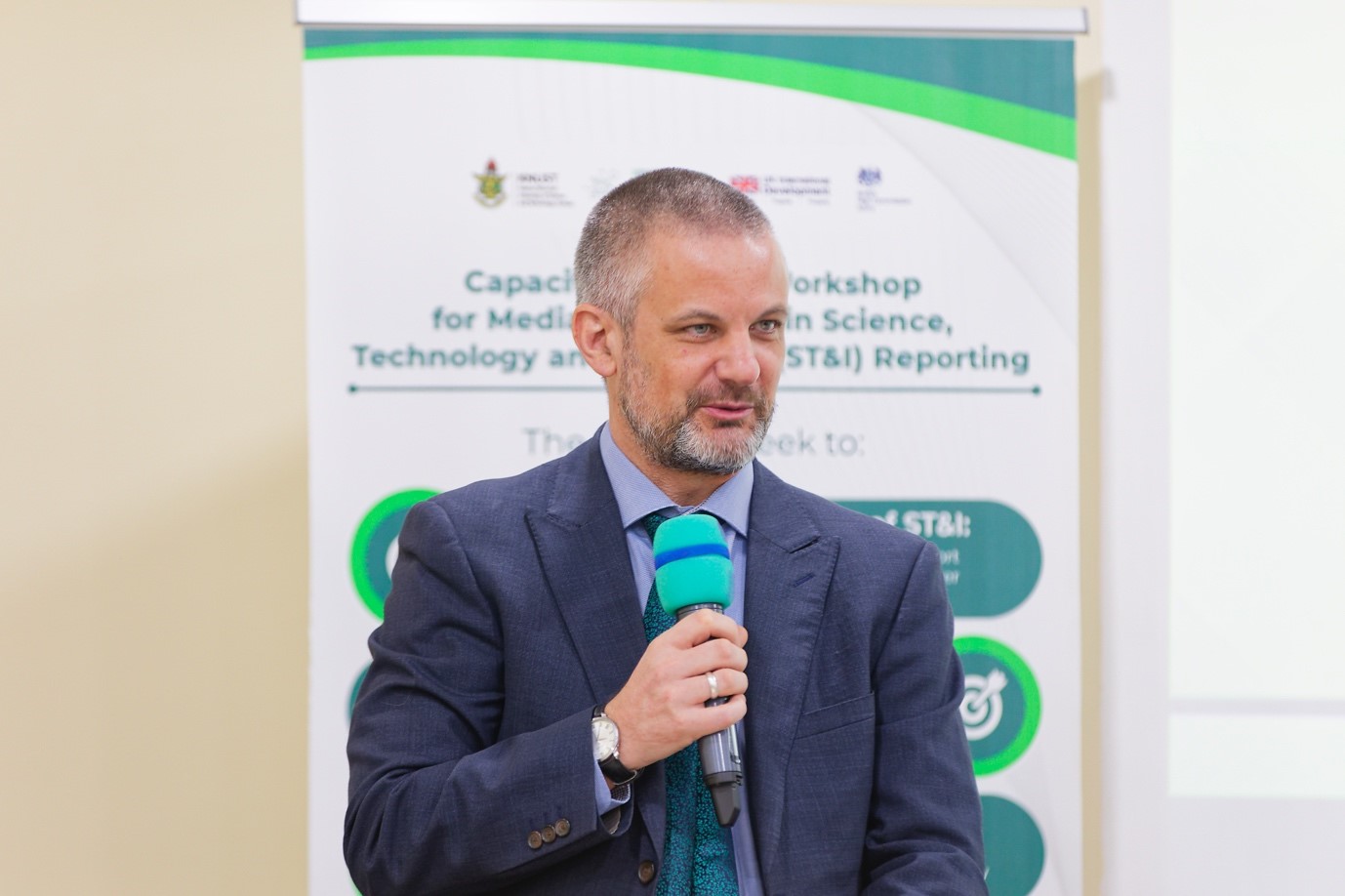
Mr. Richard Sandall, Development Director at the British High Commission Accra, emphasised the importance of this initiative, stating, "This is the second edition of the workshop aimed at equipping media personnel with skills in ST&I reporting. Science and technology stories are shaping the world rapidly, and it is crucial for journalists to keep pace."
He revealed that a key highlight of the workshop is a pitch competition, where the top 10 innovative ideas will be awarded £1,000 each. Additionally, winners will have the opportunity to visit Imperial College London for knowledge exchange and further training. He hinted that as part of efforts to ensure continuity, KNUST will introduce a short course on media excellence in Science, Technology, and Innovation, reinforcing a sustainable capacity-building approach for journalists.
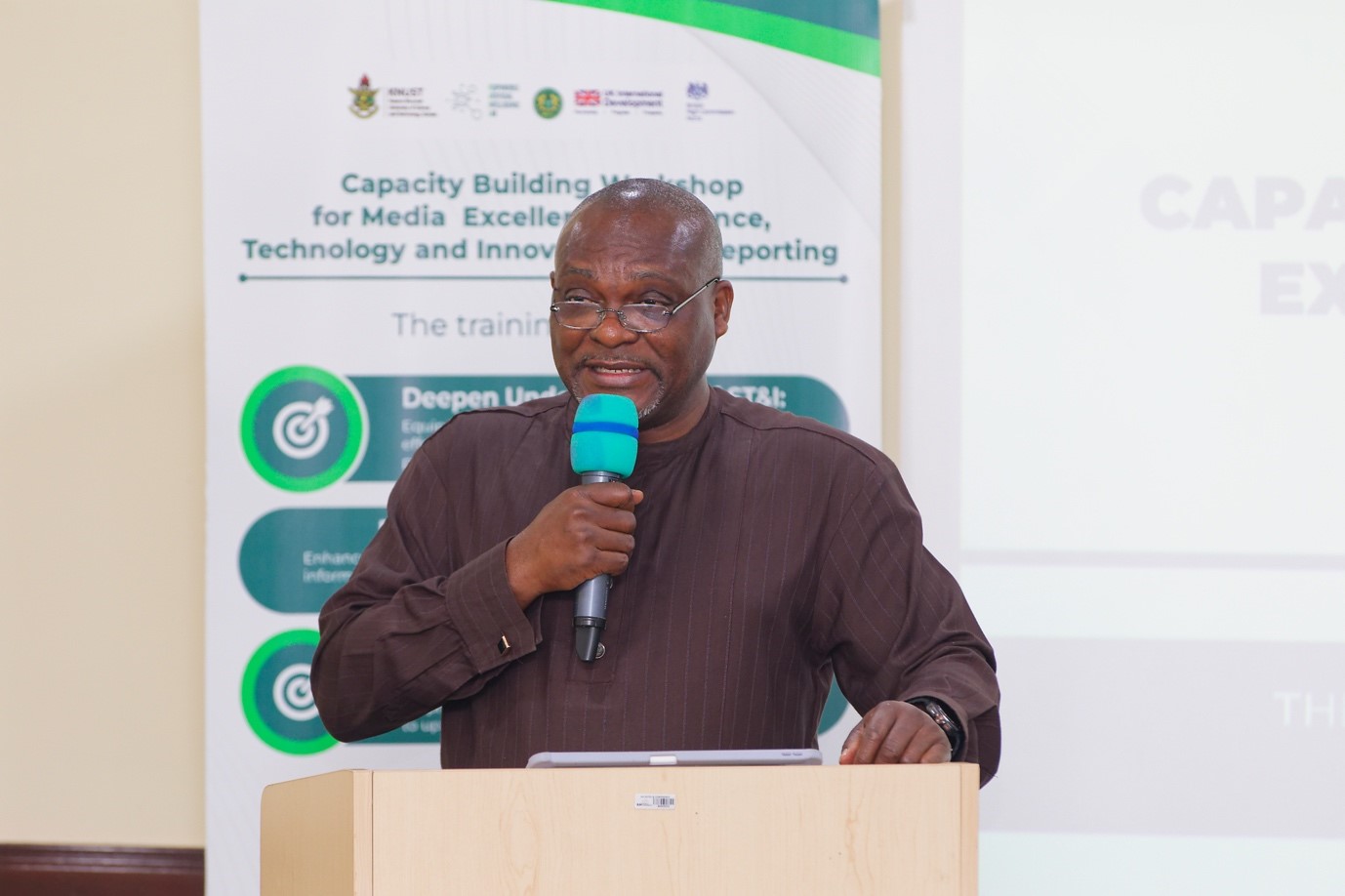
Mr. Kwamena Quaison, Director of Science and Technology at MEST, reaffirmed the media's critical role in national development. He mentioned that ongoing discussions on ST&I have led to an executive directive to restructure MEST for greater efficiency.
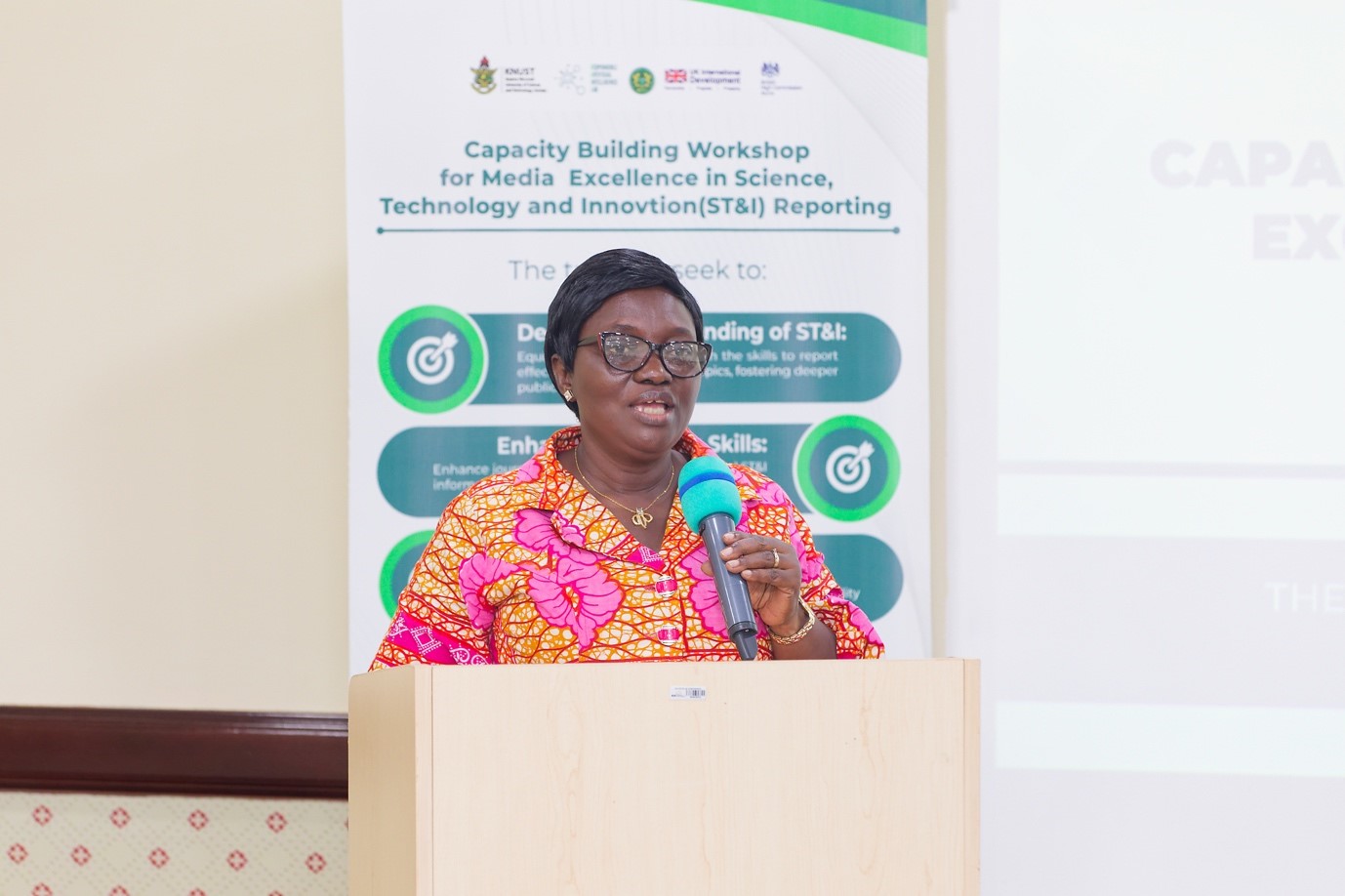
Mrs. Linda Asante Agyei, Vice-President of the Ghana Journalists Association (GJA), acknowledged progress in bridging the communication gap between scientists and the media. "In the 1990s, getting scientists to discuss their innovations publicly was difficult. Today, they engage on radio and TV and even write articles about their work. This is a positive shift," she noted. She further encouraged collaboration between science journalists and communicators to form strong networks for funding and support.
She asserted that science and technology reporting presents unique challenges, including complex scientific concepts, the fast-paced nature of technological advancements, and ethical considerations. Mrs. Asante Agyei recommended continuous learning, improving science literacy, and fostering collaborations between journalists and experts to enhance reporting quality.
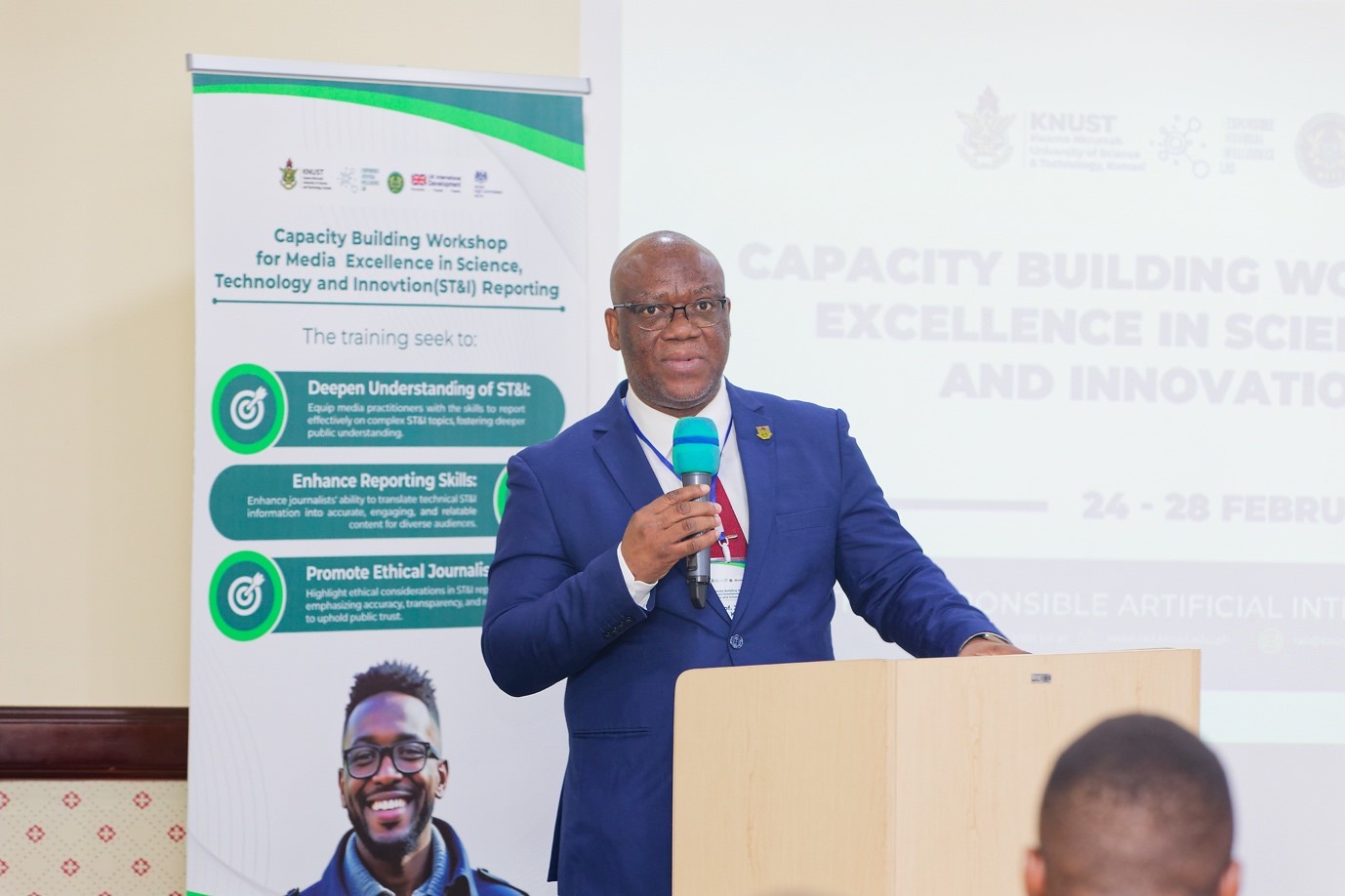
Prof. Jerry John Kponyo, Principal Investigator and Scientific Director of RAIL KNUST, reaffirmed the university’s dedication to advancing ST&I research for national development. However, he pointed out that many groundbreaking scientific breakthroughs from KNUST and other Ghanaian universities remain underreported.
"There is a disconnect between scientific research and its communication. To bridge this gap, KNUST, through RAIL, has partnered with the British High Commission and MEST to equip journalists with the necessary skills to report on STI developments effectively," he stated. Prof. Kponyo reiterated the university's commitment to sustaining the workshop as a short course for continuous training in science journalism.
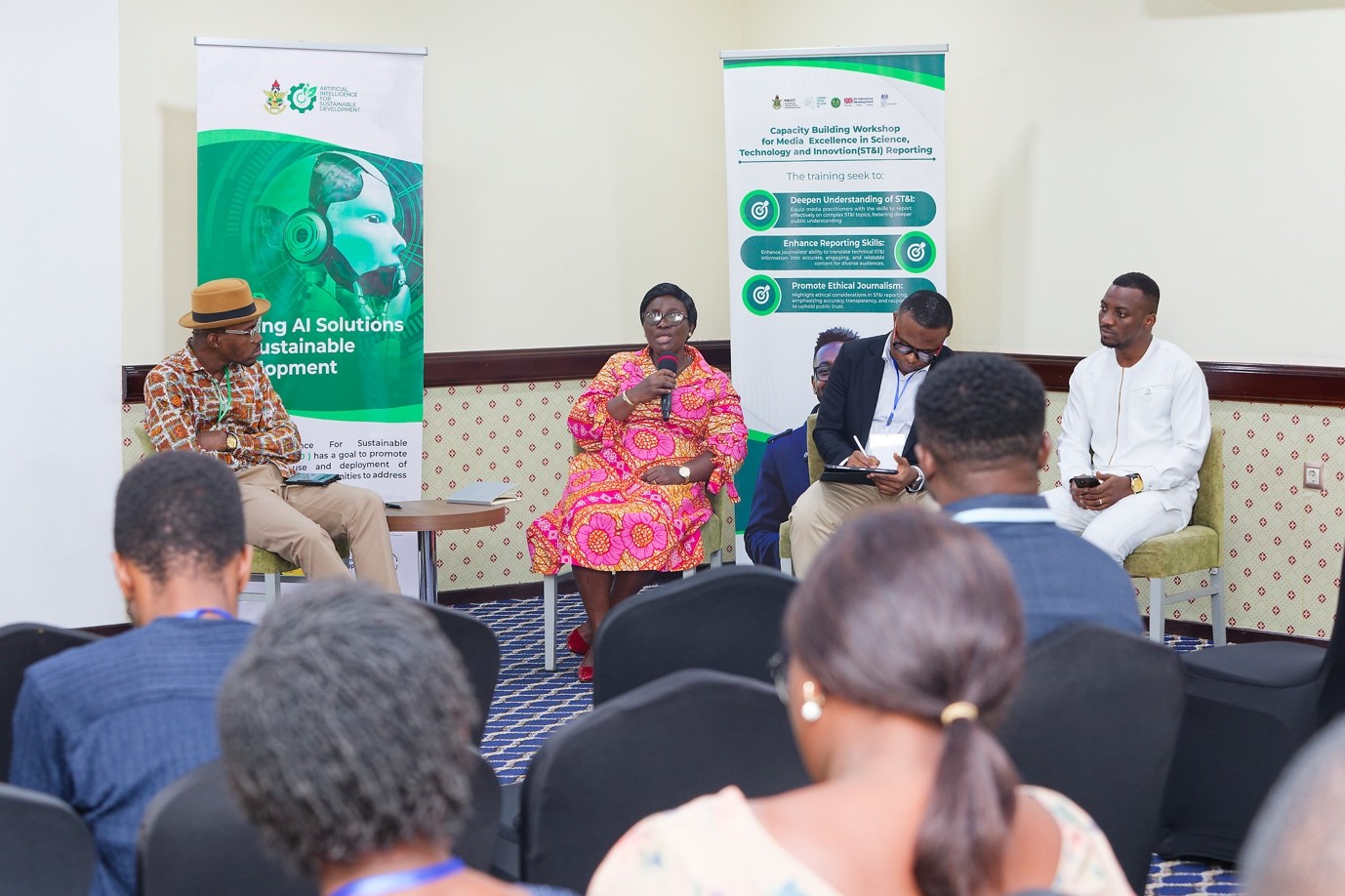
A panel discussion featuring key stakeholders, including Mr. Johnson Masagotin Singir, Science and Innovation Officer at the British High Commission Accra, Nashiru Salifu from MEST and Mrs. Linda Asante Agyei, explored the challenges in ST&I reporting, the implementation of the UK-Ghana STI Strategy, and future initiatives.
Participants advocated for increased editorial interest in ST&I stories and the revival of science desks in media houses. Additionally, they proposed that the GJA push for policies mandating that at least 10% of news coverage focus on ST&Is.
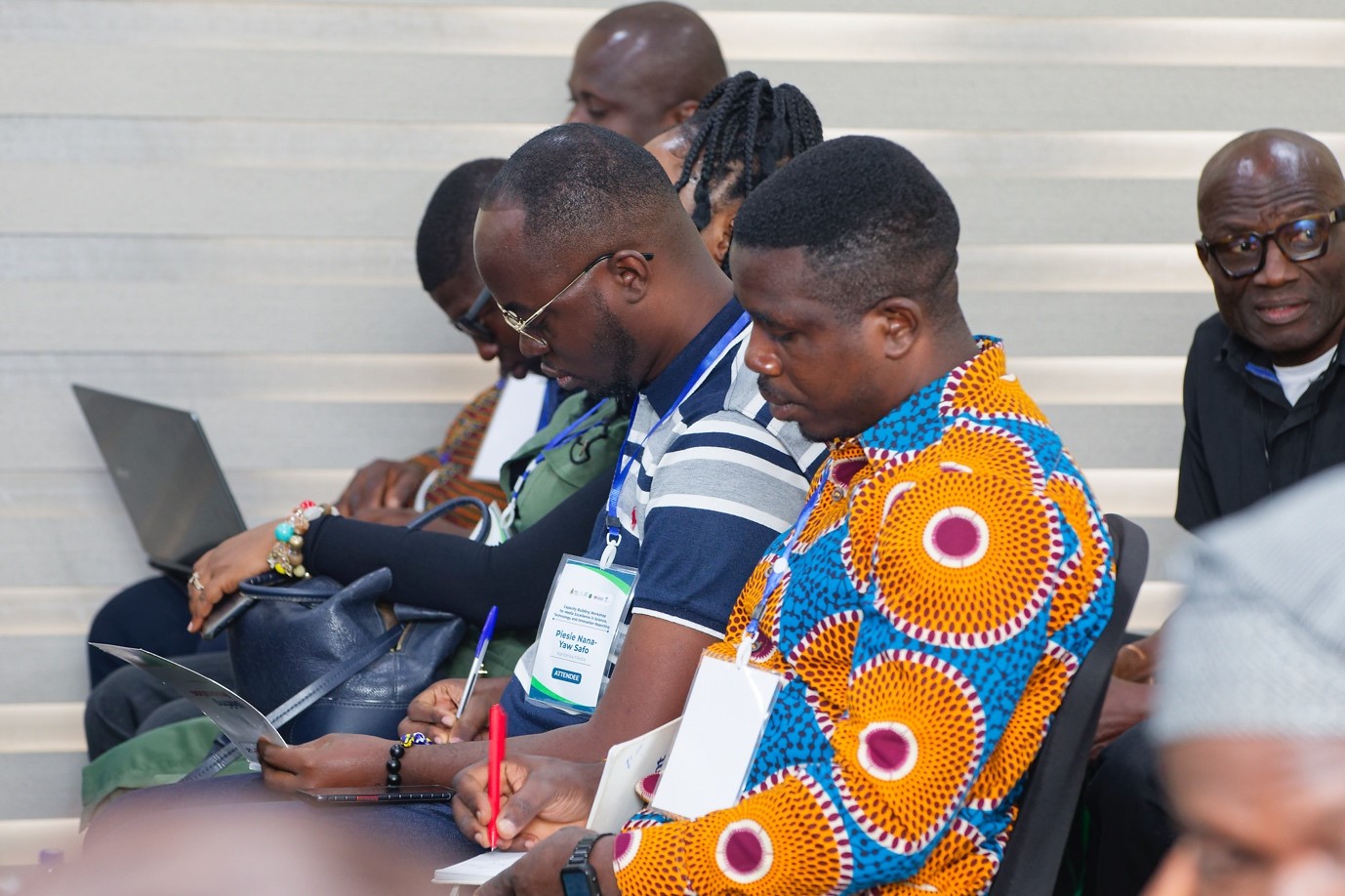
The workshop provided Ghanaian journalists a platform to enhance their science and technology reporting skills, ensuring that scientific breakthroughs and technological innovations receive the visibility they deserve. With continued collaboration between media practitioners, academia, and policymakers, Ghana’s ST&I landscape is set to experience transformative progress.


